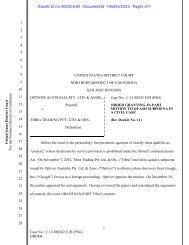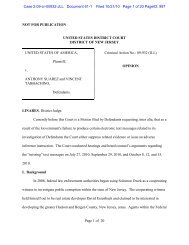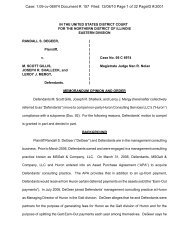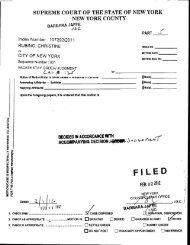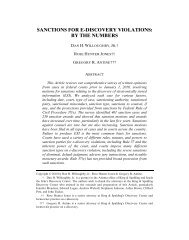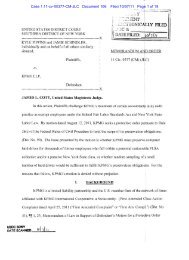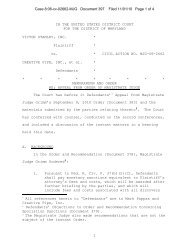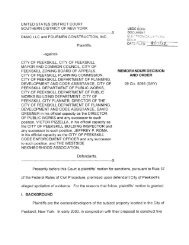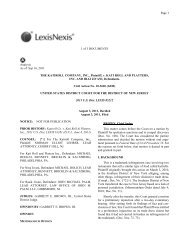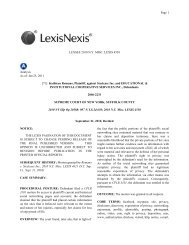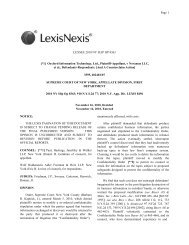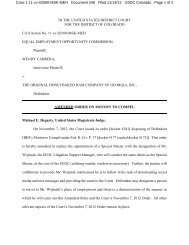Rimkus Consulting Group Inc. v. Cammarata - Ballard Spahr LLP
Rimkus Consulting Group Inc. v. Cammarata - Ballard Spahr LLP
Rimkus Consulting Group Inc. v. Cammarata - Ballard Spahr LLP
You also want an ePaper? Increase the reach of your titles
YUMPU automatically turns print PDFs into web optimized ePapers that Google loves.
Case 4:07-cv-00405 Document 450 Filed in TXSD on 02/19/10 Page 99 of 139<br />
with another as to represent the same legal right.” Five N Company, L.L.C. v. Stewart, 2002-<br />
0181, p. 16 (La. App. 1 Cir. 7/2/03); 850 So. 2d 51, 61. Privity exists for res judicata<br />
purposes: “(1) where the non-party is the successor in interest to a party’s interest in<br />
property; (2) where the non-party controlled the prior litigation; and (3) where the<br />
non-party’s interests were adequately represented by a party to the original suit.” Condrey<br />
v. Howard, No. 28442-CA, p. 5 (La. App. 2 Cir. 8/21/96); 679 So. 2d 563, 567.<br />
The record shows an identity of interest between Bell and <strong>Cammarata</strong> on the one hand<br />
and U.S. Forensic on the other. Bell, <strong>Cammarata</strong>, and DeHarde, the plaintiffs in the<br />
Louisiana litigation, own 75% of U.S. Forensic. The actions of Bell and <strong>Cammarata</strong>—the<br />
defendants in this federal case—in leaving <strong>Rimkus</strong>, forming U.S. Forensic, and competing<br />
with <strong>Rimkus</strong> are the basis of both the Louisiana litigation and this case. <strong>Rimkus</strong> seeks to<br />
hold U.S. Forensic liable with Bell and <strong>Cammarata</strong> for these actions. Bell and <strong>Cammarata</strong><br />
represented U.S. Forensic’s interests in the Louisiana litigation in seeking to have the<br />
noncompetition and nonsolicitation covenants declared unenforceable. The identity of<br />
parties requirement for preclusion is met.<br />
3. The Relationship of the Claims<br />
<strong>Rimkus</strong> contends that the claims in this suit and the Louisiana suit do not arise out of<br />
the same transaction or occurrence because the Louisiana state-court judgment did not<br />
involve <strong>Rimkus</strong>’s federal claims for cyberpiracy and trademark infringement, (Docket Entry<br />
No. 321-1 at 8–9), and the Louisiana court could not decide the Texas contract and tort<br />
claims <strong>Rimkus</strong> raised, (Docket Entry No. 324 at 12). <strong>Rimkus</strong> argues that, notwithstanding<br />
99



